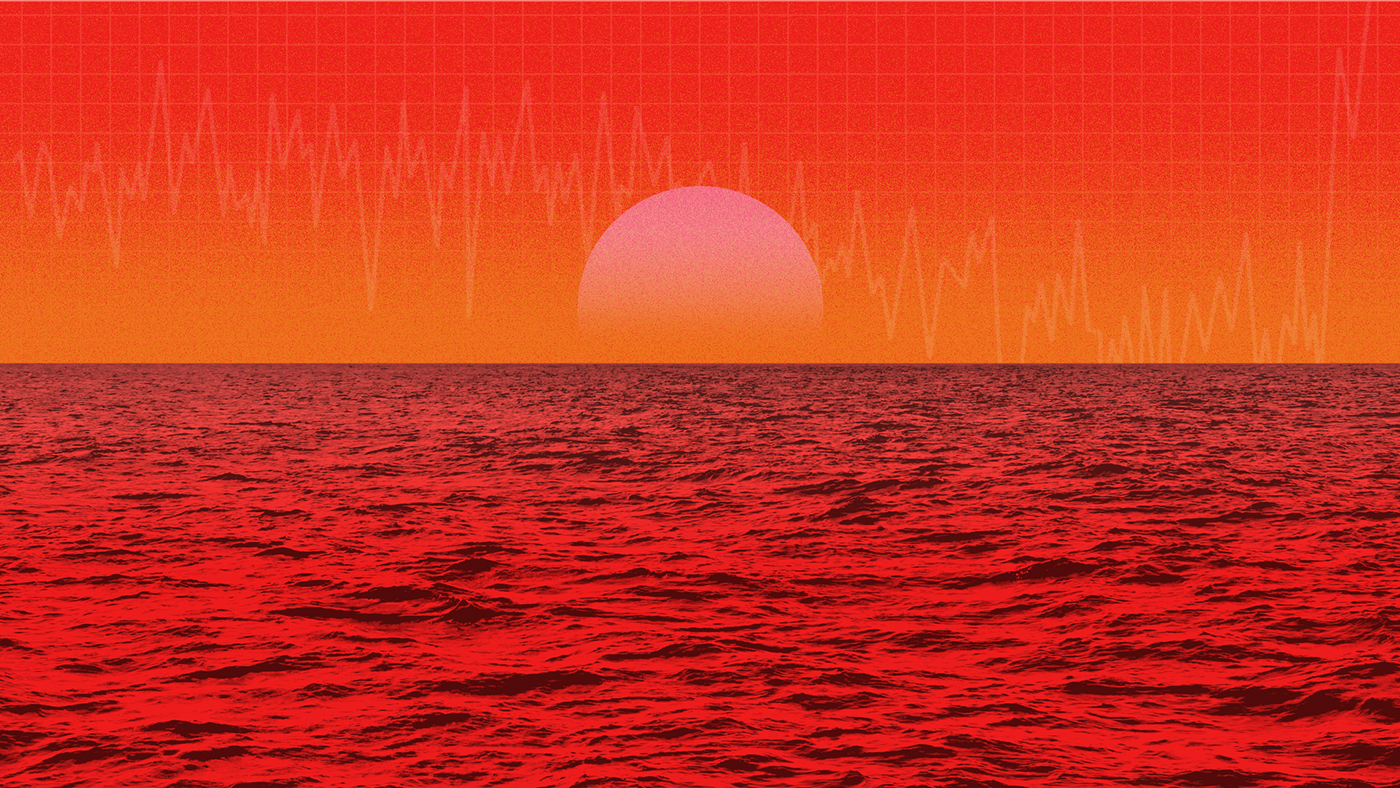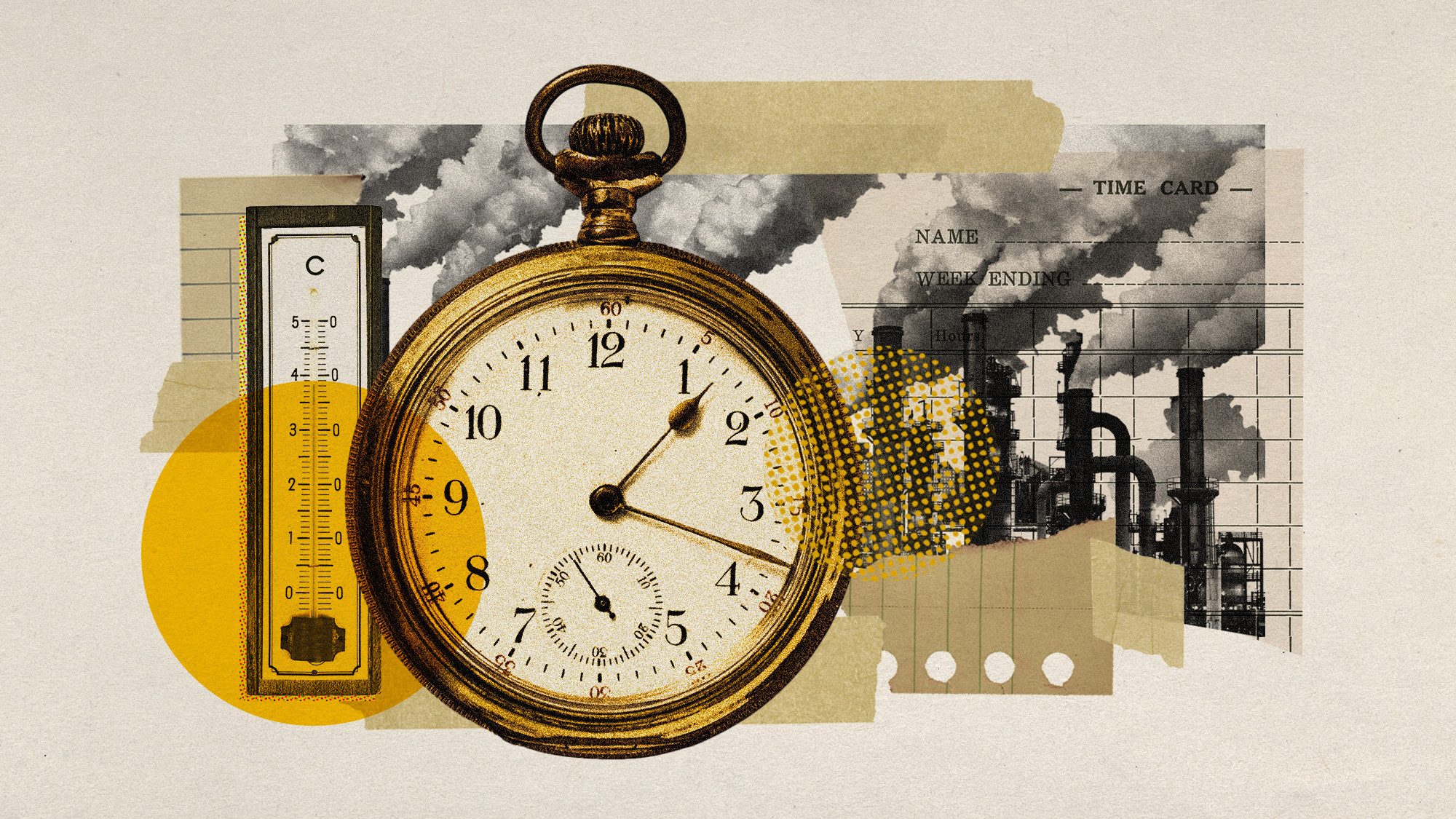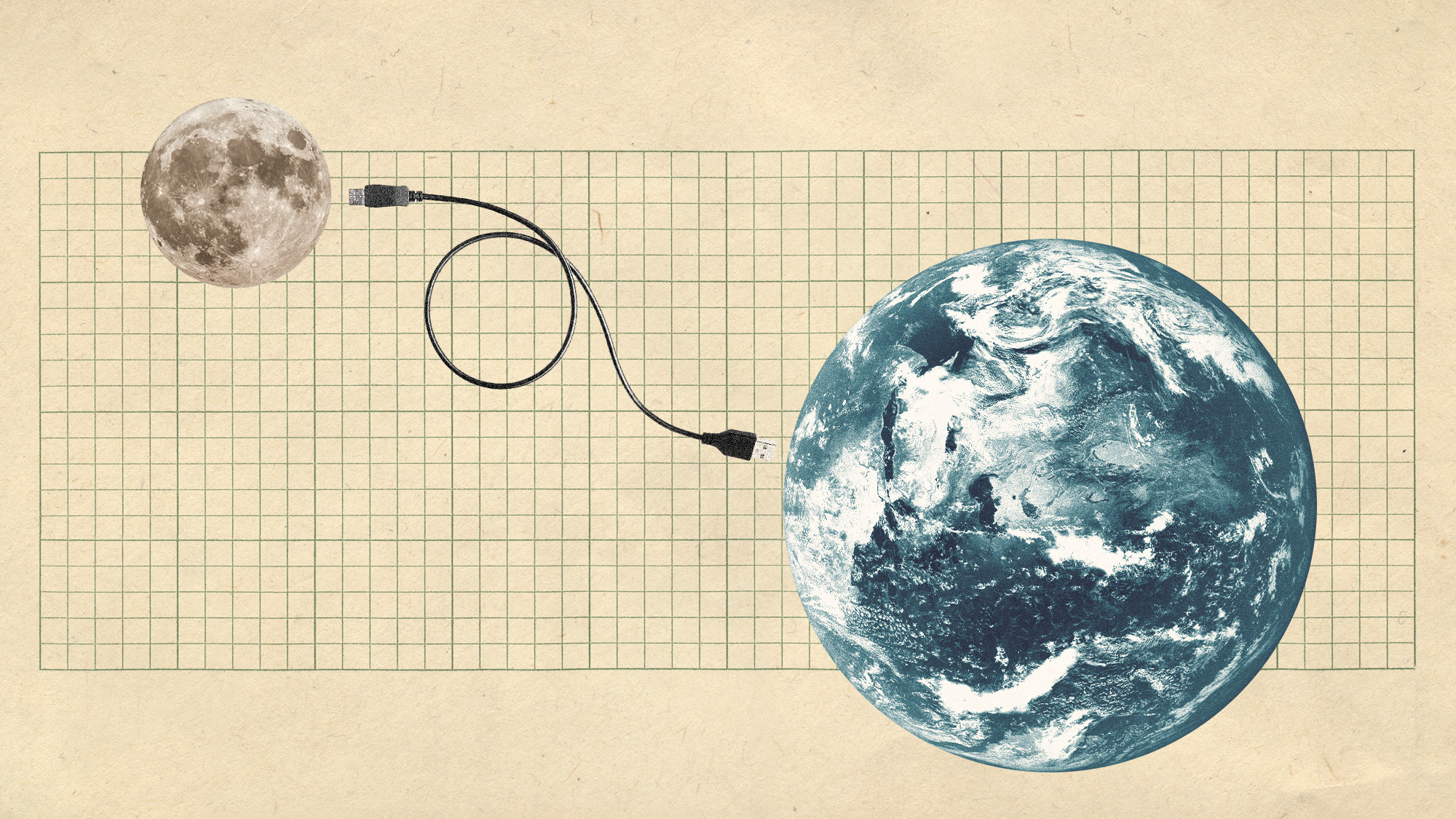Why the world's oceans are suddenly getting hotter
A temperature spike raises concerns among climate scientists


The ocean is getting warmer, and fast. The BBC reports that "a recent, rapid heating of the world's oceans" has raised alarms among scientists who worry the sudden trend is a sign that climate change is accelerating. That could have devastating consequences: Fish and other marine life could die off, more extreme weather events could be on the way, and the oceans — already rising — will encroach on coastal areas.
"This is heading in an unprecedented direction, and could be taking us into uncharted territory," the University of East Anglia's Ben Webber tells The Guardian. Why is the ocean warming? What effects will it have? And can anything be done?
What's going on with the oceans?
The temperature has spiked in the last two months. "From early March to this week, the global average ocean sea surface temperature jumped nearly two-tenths of a degree Celsius," The Associated Press reports. That doesn't sound like a lot, but scientists point out that oceans cover more than two-thirds of the earth's surface — any process that warms that much water that quickly is worth noticing. "That's huge," one scientist tells AP. Indeed, Newsweek points out that the latest measurements are the highest temperatures recorded "since accurate satellite temperature records began in 1981."
Subscribe to The Week
Escape your echo chamber. Get the facts behind the news, plus analysis from multiple perspectives.

Sign up for The Week's Free Newsletters
From our morning news briefing to a weekly Good News Newsletter, get the best of The Week delivered directly to your inbox.
From our morning news briefing to a weekly Good News Newsletter, get the best of The Week delivered directly to your inbox.
Weren't the oceans already warming?
Yes. "The last 10 years were the ocean's warmest decade since at least the 1800s," NASA reports. "The year 2022 was the ocean's warmest recorded year and saw the highest global sea level."
Why are the oceans suddenly warming so fast?
There's some debate about that. Some scientists suspect the warming is part of the regular El Niño cycle that spikes temperatures every few years. "Temperatures in the Pacific become warmer than normal and El Niño is declared once temperatures rise 0.5C above the long-term average," Yahoo News reports. All that heat can produce extreme weather events around the world — and indeed, forecasters are suggesting that 2023 is going to see an El Niño that brings intense heat spikes around the world. The current ocean spike might be an El Niño event on top of extant climate change.
Or maybe not. Some scientists say the warming spike doesn't fit the usual El Niño profile. "This is an unusual pattern," Princeton University's Gabe Vecchi tells AP. He adds: "I think it's going to take some level of effort to understand it." BBC adds that climate change may not follow a straight path, but instead follow a cycle of "little changes over a period of years" followed by "sudden leaps upwards." Is that the case with the current spike? Scientists still don't know.
Wait. Why would ocean warming accelerate climate change?
Here we arrive at the chicken-and-egg question: Climate change is producing warmer oceans, but warmer oceans could also produce climate change. How? Scientists at Utah State University point out that the oceans have long acted as a buffer against global warming, by "soaking up" carbon dioxide emissions. But the change in rainfall and ocean temperatures caused by climate change "hinders the ability of the oceans to absorb carbon dioxide." One of the researchers points out that "the oceans have been doing us a big favor by absorbing some carbon dioxide and lowering the amount of warming." Lose that protection, and the pace of warming could accelerate.
What are scientists saying?
The BBC report included this ominous note: "Several scientists contacted for this story were reluctant to go on the record about the implications," though one researcher spoke of being "extremely worried and completely stressed." Common Dreams responded with a cheeky headline: "Ocean Warming Study So Distressing, Some Scientists Didn't Even Want to Talk About It."
What's next
In the long run, climate change threatens ocean life. CNN reports that the ocean's "twilight zone" — located between 656 feet and 3,280 feet below the surface — is now home to "some of Earth's most stunning biodiversity," but could see a die-off as warming continues. As a result, scientists report they're in a "race against time" to simply catalog as many as 100,000 marine species over the next decade.
Climate activists are pointing to the temperature spike to inject fresh urgency into humankind's efforts to reduce climate-altering carbon emissions. "We still have a window where we can act," oceanographer Karina Von Schuckmann tells Earth.com, "and we should use this to reduce the consequences."
A free daily email with the biggest news stories of the day – and the best features from TheWeek.com
Joel Mathis is a writer with 30 years of newspaper and online journalism experience. His work also regularly appears in National Geographic and The Kansas City Star. His awards include best online commentary at the Online News Association and (twice) at the City and Regional Magazine Association.
-
 How many people are working illegally in the UK?
How many people are working illegally in the UK?The Explainer Government vows 'nationwide blitz' on illicit workforce believed to number in the hundreds of thousands
-
 The week's best photos
The week's best photosIn Pictures A devastating flood, a hungry manatee, and more
-
 6 helpful (and cute) phone accessories
6 helpful (and cute) phone accessoriesThe Week Recommends Answer the call of style
-
 Bacteria can turn plastic waste into a painkiller
Bacteria can turn plastic waste into a painkillerUnder the radar The process could be a solution to plastic pollution
-
 Florida has a sinking condo problem
Florida has a sinking condo problemUNDER THE RADAR Scientists are (cautiously) ringing the alarms over dozens of the Sunshine State's high-end high-rises
-
 Diamonds could be a brilliant climate solution
Diamonds could be a brilliant climate solutionUnder the radar A girl and the climate's best friend
-
 Is Daylight Saving Time good for the climate?
Is Daylight Saving Time good for the climate?Under the Radar Scientists are split over the potential environmental benefits of the hotly contested time change
-
 The pros and cons of GMOs
The pros and cons of GMOsPros and Cons The modified crops are causing controversy
-
 The UK's worsening wet weather
The UK's worsening wet weatherThe Explainer More frequent and intense rain is keeping flood boss 'awake at night'
-
 Is dangerous weather in the Mediterranean Sea the new normal?
Is dangerous weather in the Mediterranean Sea the new normal?Today's Big Question A waterspout, or sea tornado, recently sank a superyacht off the coast of Sicily
-
 The moon may be the ideal place to preserve Earth's biodiversity
The moon may be the ideal place to preserve Earth's biodiversityunder the radar A cache in a crater
